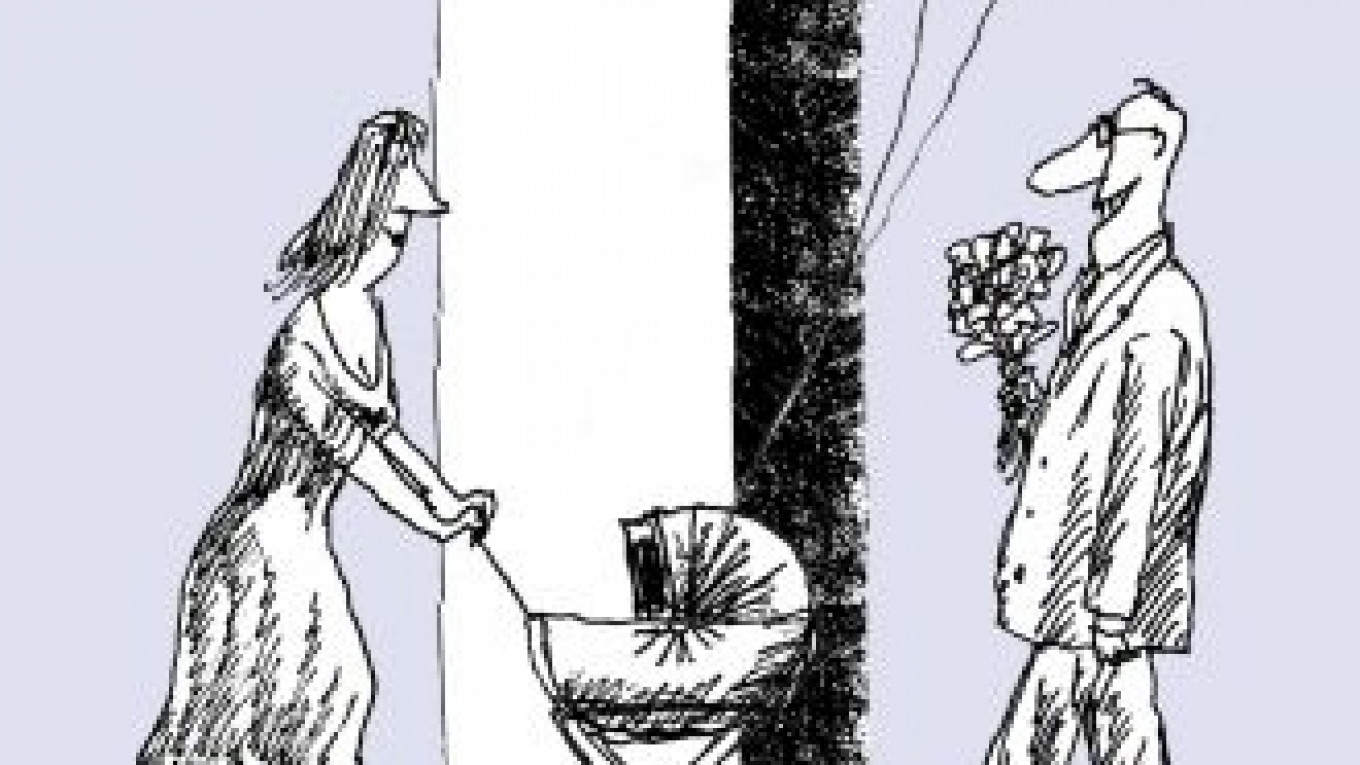At least 70 years after millions of people fell victim to political repression, Russia has yet to come to terms with the crimes of its Soviet past. In fact, it even seems as if nobody really wants to discuss the subject and that it has been imposed on us by some overly clever person or ill-intentioned foreigner.
But it is increasingly rare that foreigners are interested in this topic. And with so many conflicting emotions involved, many Russians continue to feel that the issue divides rather than unites society. This is not because there are so many hard-core supporters of former Soviet leader Josef Stalin, but because a significant portion of the population believes that condemning the crimes of the Soviet regime somehow reflects negatively on themselves, their parents or the older generation, and places a dark cloud over more positive memories from that period. Another factor is the traditional mistrust that some members of society feel toward the educated class, “liberals,” “reformers” and human rights activists who are typically associated with this subject.
These feelings would eventually disappear if no special effort were made to cultivate them. Unfortunately, Kremlin spin doctors have long cultivated a juvenile attitude that says, “Europe cannot condemn us for Stalinism when the German SS was guilty of comparable crimes.”
The West is now too preoccupied with its own problems to bother preaching to other countries. And anyway, it is not so important what others say about Russia. The problem of past Soviet wrongdoings is primarily a domestic Russian problem. The best approach for Russia to take is not to stage vigils but to prove to the world through its actions that it is learning the necessary lessons from its past.
The memory of our Soviet past should not be static but active. It should be reflected in both the public and political life of the country. Russia is permeated with signs of its Soviet past. There is plenty of work for everyone to do in perpetuating the memory of those killed and in designating historical sites connected with those events. Only in rare cases does a memorial plaque grace the many buildings, streets, canals, factories and mines built by prisoners of that era. In many cities, streets still bear the names of Soviet leaders, and sometimes, the executioners (often the same person).
That situation should be rectified quickly, or at least some form of explanatory note should be appended to existing signs. The locations of many executions and burials have not yet been found. Millions of people still do not know where their relatives are buried. To this day, Russia has only regional and private museums chronicling state terror but not a single museum of national status. Many of the names of the repressed remain unknown. The “Victims of Political Repression of the Soviet Union” database compiled by the Memorial organization and published at lists.memo.ru/index.htm includes about 2.6 million names. Speaking at an international “History of Stalinism” conference, Memorial chairman Arseny Roginsky said, “At the current rate of work, it would take several more decades to make a complete list.”
To take a wider view of reconstructing Russia’s attitude toward its past, the state should fulfill its obligation to people living in hardship conditions — and especially those in single-industry towns. Those difficult living conditions are a result of the forced urbanization and industrialization that the Soviet state accomplished by borrowing against the future. Now the government should make good on that debt. What’s more, it is intolerable that corrupt authorities use the judicial and law enforcement systems to enrich themselves through illegal seizures of property when so many people previously fell victim to that same system for political reasons. Law enforcement and judicial reforms are therefore fitting tribute to the memory of those victims.
Respect for human dignity is also fitting tribute because the first step of political repression was to eliminate that dignity. Any form of government that is based on a disregard for human dignity should be considered unacceptable.
And let us not forget that it was not an occupying force or a foreign power that committed those crimes of repression. This was Russians killing Russians on a massive scale, in numbers that even now are difficult to reckon. It is difficult to accept this fact, as Roginsky also mentioned in his speech. He said, “When we remember the terror, we are unable to assign the principle role and incapable of using the pronoun ‘we’ in place of ‘they.’”
But every victim of repression always had a very specific understanding of who perpetrated the crime against them — either the person who carried out the order, those who were responsible for fulfilling the latest “quota,” the authorities who created the quota, or those at the top who established the policy of quotas and repression in the first place. Those who committed the crimes had one thing in common: They were all political leaders and functionaries of the state. The state itself was the main culprit. A full reckoning with the Soviet past should begin by acknowledging the criminality of the state. But, as Roginsky pointed out, recognizing this fact is difficult for a political system that insists on the infallibility of those in authority. This in part explains Russia’s strange “memory lapse,” its lack of a national museum of state terror, why it rewrites textbooks and straddles the fence by admitting that there were victims of repression while ignoring the existence of a perpetrator of those crimes.
That is a mistake. Acknowledging the crimes of the Soviet state does not mean an end to the Russian state. Rather, it would mark the beginning. Such recognition could serve as the moral basis for the fight against corruption, for government reforms and for the general improvement of the country. “We” and “they” — that is, we the people and they the government — are still locked in a conflict that cannot be resolved until we come to terms with our Soviet past.
Maxim Trudolyubov is the opinion page editor of Vedomosti, where this comment appeared.
A Message from The Moscow Times:
Dear readers,
We are facing unprecedented challenges. Russia's Prosecutor General's Office has designated The Moscow Times as an "undesirable" organization, criminalizing our work and putting our staff at risk of prosecution. This follows our earlier unjust labeling as a "foreign agent."
These actions are direct attempts to silence independent journalism in Russia. The authorities claim our work "discredits the decisions of the Russian leadership." We see things differently: we strive to provide accurate, unbiased reporting on Russia.
We, the journalists of The Moscow Times, refuse to be silenced. But to continue our work, we need your help.
Your support, no matter how small, makes a world of difference. If you can, please support us monthly starting from just $2. It's quick to set up, and every contribution makes a significant impact.
By supporting The Moscow Times, you're defending open, independent journalism in the face of repression. Thank you for standing with us.
Remind me later.








